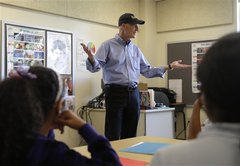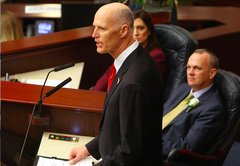slide 1 of 1
Be No. 1 in nation for student performance in reading and math
Rick Scott
"Be No. 1 in the nation for student performance by expecting all of our students to perform at or above grade level in math and reading."
Scott-O-Meter
Promise Broken



